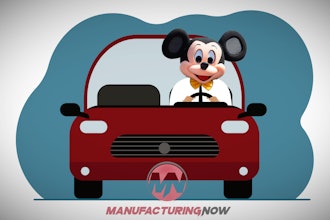U.S.-based manufacturers are increasingly finding themselves reacting to shifts in the global supply chain that are increasing prices and delivery lead times. Rather than rolling over and crying uncle, vertically integrated companies are playing on their strengths, which include faster times to market for new, updated, or custom-built products.
Such companies have better control over their inventories and can therefore minimize exposure to risks that plague companies that need to make overseas bulk purchases of pre-assembled products. This enhanced manufacturing flexibility allows a vertically integrated company to be much more responsive to critical needs and requirements of the customer, and often translates into a higher level of service and support.
In addition, a resurgence of consumer patriotism positions U.S. manufacturing companies to leverage opportunities and capture market share for substantial bottom-line gains.
Shift in World Markets Increasing Prices and Lead Times
China, and to a lesser extent India, has dominated world markets during the past few years. These self-sustaining economies now have the luxury of being both the biggest buyers and suppliers in the global supply chain. They are consuming vast amounts of raw materials, and are putting a strain on the rest of the supply chain. The upshot is a dramatic shift from the age of a buyer’s market to that of a seller’s market.
As a result, the rest of the world is experiencing increased pressures in the form of higher pricing and drastically increased lead times. What used to take a few weeks to receive may now take as much as six months to a year.
Vertically integrated companies are best able to mitigate these pressures. Those least reliant on others to conduct their business can be more adept at navigating around supply chain obstacles. Vertically integrated companies are more flexible and able to react to market fluctuations much faster than those heavily exposed or anchored to outsourcing.
Made in the USA -- Brand Loyalty Sweetens the Pot
China (and to a lesser extent India) are being viewed in a similar way to how we viewed Japan in the 1980’s. As the world economy evolves, and new economic powerhouses emerge, we are also witnessing an upsurge in pride for American-made goods.
In the United States, the slow recovery following the recent downturn in the economy has fueled a resurgence of consumer patriotism among U.S. distributors, contractors and consumers alike. The sentiment is aided by U.S. government-backed stimulus programs that promote buying American-made products.
Manufacturers that can brand themselves and their products as being truly Made in the USA, and can deliver the products, are best able to take advantage of these market opportunities.






















